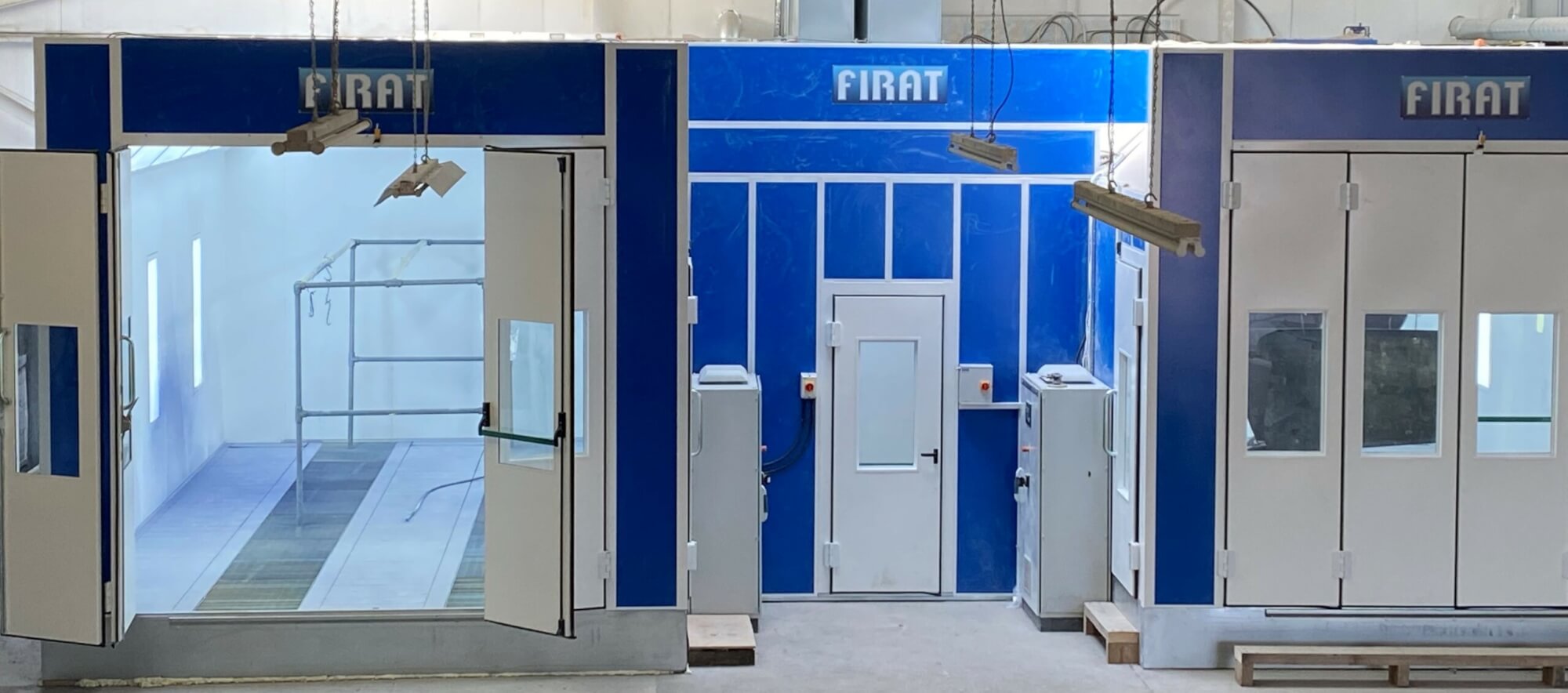Circular Booster
Support given:
Redesign
Dartford Composites produces a variety of glass-reinforced plastic (GRP) parts for the rail industry that form products such as exterior panelling and internal mouldings. There is currently no alternative to using acetone in the production process of these composite parts. Virgin acetone prices are currently very volatile and having to dispose of used acetone after a single use has long been an unfortunate but necessary part of the manufacturing process.
Dartford Composites was awarded a £10k grant by ReLondon on behalf of the Mayor of London's Green New Deal fund, to support the purchase of machinery and training of staff to collect and recycle acetone used on site. Measuring the volume of acetone processed enabled them to quantify the environmental and commercial benefits of reuse, as well as consider the potential business model and logistics for recycling waste chemicals from other facilities. Over just 3 months of the pilot, Dartford Composites were able to reduce virgin acetone consumption by 67% and expect to reduce expenditure by £9,500 in 2022. At the same time, quantifying the environmental benefits from this small change has helped to boost their environmental credentials with key clients who are under increasing pressure to consider environmental impact in their procurement practices.What was the challenge?
Dartford Composites manufacture and refurbish high quality, specialist components made from glass reinforced plastic. In their over 30 years of operations, they have primarily served the rail industry (including big names in the sector), with additional experience in a range of other sectors such as lifeboats and street furniture. They’ve been increasingly uniquely placed to help industries such as the tram & railway sectors deliver on their sustainability agenda. Their specialist refurbishment capability has meant they have been there to help clients refurbish items that would otherwise be sent to landfill.
Having supported their clients’ environmental footprint, Dartford Composites turned inwards to see what more they could do in their own operations and developed their own ambitious sustainability strategy. Through this process they identified the opportunity to reuse chemicals in their processes. This would have the dual benefit of dealing with price volatility of a key chemical input, virgin acetone. Disposing of used acetone after a single use has long been an unfortunate but necessary part of the manufacturing process.
What was the response?
The team at Dartford Composites decided to purchase a vacuum collection tank and chemical recycling machine that could be used to re-process acetone to be used again. They believed this could reduce their use of virgin acetone by between 40 and 50% each year, with cost savings associated. Dartford Composites hoped to to demonstrate best practice to their customers while saving money, by measuring the amount of acetone reprocessed, the cost of running the machines and looking at how they might calculate environmental benefits of reuse.
We were pleased to be able to offer them a circular pilot grant of £10,000 thanks to the Mayor of London’s Green New Deal fund, to cover the upfront cost of purchasing the required machinery and setting up the new process. ReLondon also supported the project with guidance around carbon calculation of the new processes.

Over a period of 6 months, Dartford Composites were able to install the new machines, train a Junior Store Man to operate and record its use, and establish the environmental and commercial benefits of their new process.
Along the way, they tackled the challenge of releasing internal capacity to capture data. They needed to capture a good level of data to build a robust business case for continuing the new process; however, they had to contend with the reality that capacity for this is limited in a small business trying to deliver projects to clients – and particularly in the context of staff absences and recruitment challenges due to COVID-19. That’s why finding the right, dedicated member of personnel to monitor the commercial and environmental benefits was key to the project; as was engaging the rest of staff in the project, so that they followed new procedures introduced, and could help ensure the trial was being properly run.
“The equipment and process are fully operational, and we are starting, even at this early stage, to see the benefits of the recycling machine. ”
Ruth Silvester, Sales & Marketing Director, Dartford Composites
What were the outcomes?
During the testing phase alone, Dartford Composites were able to save up to £900 per month by buying less virgin acetone – and this against a backdrop of extreme price volatility in the industrial chemicals. This signalled that the pilot could represent a complete return on investment within a year. And in terms of environmental benefits, the new process has also enabled Dartford Composites generate a saving of 1,599.50 kg of CO2 over the trial period.
This pilot has also helped position Dartford Composites with their customers. By adopting a “using stuff again” circular business model, they were able to demonstrate to current and prospective clients that, not only do they take their environmental footprint seriously, but they will go beyond the competition in testing new approaches that have real-world CO2 savings. Being able to communicate about the initiatives with clients has led to closer relations with their sustainability-focused staff, in turn helping Dartford Composites stay abreast of new sustainability initiatives that could support future business development.
In addition, this process has created a new revenue opportunity for the business. Having successfully developed a process and methodology for their own operations, they are exploring whether they can also provide chemical recycling services to other businesses in the area. Finally, the project has been a boost for employees at Dartford Composites. The initiative provided learning opportunities for a trainee staff member who has taken charge of setting up new processes and monitoring progress. Contributing to the company’s environmental goals has been a boost to their engagement and has grown their interest in seeking out where other savings might be made.

Lessons learned & next steps
This pilot has been instrumental in demonstrating that, where businesses take time to identify waste in their operations, and with a relatively small investments, they can generate significant cost and carbon savings.
This circular pilot project is a great illustration of the many small opportunities to reduce waste within a factory setting, but shows these require intention, creativity and investment of time and money to realise. Simple changes which might seem insignificant at first can add up to large savings, both in terms of resource use and finances. Under the right conditions, investing in collecting data to tell the story of environmental benefits can open new relationships and contracts with clients.
For other businesses seeking to implement a similar model, we would encourage you to look at your own waste and identify which materials could be addressed – especially if they are expensive, volatile in price, or tied to instability in the market. A focus on training and supporting the right staff has long been vital to their success as a business but also in successfully carrying out their circular pilot project.
Through 2022, Dartford Composites has plans to continue monitoring the environmental benefits from the new machine as well as better understanding the positive impact from their specialised repair and refurbishing services. They’ll continue exploring the opportunity to provide chemicals recycling for other businesses in the area, which could further reduce their consumption of virgin chemical while offering a service to help other businesses reduce waste.
“Many people forget that we still manufacture things in London... Our specialist repair and refurbishment services save clients time and money while reducing their environmental footprint.”
Mark Silvester, Managing Director, Dartford Composites
Get in touch
If you’re interested in working with Dartford Composites or finding out more about their sustainability work, get in touch with Ruth Silvester (ruth.silvester@dartfordcomposites.co.uk).
ReLondon’s business transformation team continues to help small-and-medium sized businesses in London adopt the circular economy through our advisory support, grant schemes, and matchmaking services. Find out more about our fully funded business support programme at our website.







